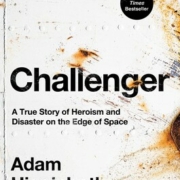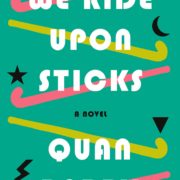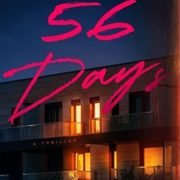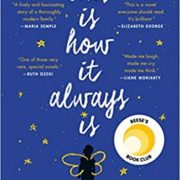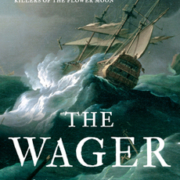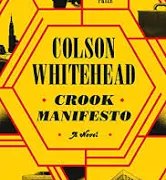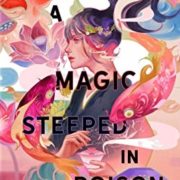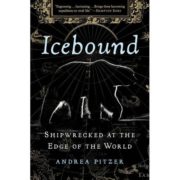The Fact Checker by Austin Kelley
A quick glance at the cover of Austin Kelley’s novel, The Fact Checker, and you’ll recognize by font alone that the fact-checking taking place is at The New Yorker. The magazine in the novel is unnamed, but we get the gist. Plus, Kelley’s bio states that he was once a fact checker at—you got it—The New Yorker. The narrator, known to us as the Fact Checker, describes his life during a story he was assigned in 2004. An entertaining and sprightly read, it’s also a novel describing a world that manages to be both foundational to our current world and yet long gone at the same time.
Our fact checker is good at his job. We meet him as he describes investigating one story’s accuracy by quizzing (almost badgering) the widow of a fallen CIA officer. It’s all in service to the article, to its veracity. We also get the impression that he doesn’t mind name-dropping during casual conversation that he works for an esteemed New York magazine (even if he’s not authoring any of its stories). Still, he confesses that he’s “always drowning in a storm of information and doubt.” And he freely admits that he confuses his desires and disdains in both his personal and professional lives.
It’s pretty clear his girlfriend left him because she found his encyclopedic conversation corrections exhausting. It’s also evident he’s unsure of what to do about this pedantic trait of his. And it’s more than certain he doesn’t recognize that his internal moral outrage to boorish behavior he sees in others belies his own personal actions.
What provides him a singular purpose is a low-stakes story he’s assigned. A vendor at a city farmer’s market is selling a particular type of tomato that’s blowing everyone’s hair back. In the article, the Fact Checker is intrigued by a quote from a vendor employee, Sylvia, who says there’s also some “nefarious business” at the market. He finds Sylvia at the market and is completely beguiled by her. His opposite in almost every way, she takes him out one night to an underground supper club in the city. He learns a fair bit about her (she says she was raised in a cult). Yet, despite his repeated questions, he learns nothing about the supposed nefarious business.
Kelley captures the early aughts well. It’s a world where the George W. Bush administration had already presented their case for invading Iraq. To many, this presentation strained credulity as not only were there disagreements over what can be considered as fact, but also of what truths one can responsibly glean from said facts. Regardless, a presidential administration believing that they even need to justify its actions—to publicly persuade—seems like a bygone era.
We see the emerging urban hipsters, with some sporting a “jug band chic” look. The Fact Checker finds himself at a meeting of self-professed anarchists where there’s an unironic call to conduct a feasibility study of the group’s proposed actions. Food culture is taking off in New York City. One magazine writer, having just spent some time with a group of people who raise and harvest their own meat, decides to export the practice to his high-end NYC apartment.
In a tragi-comic scene, the Fact Checker stops by the author’s apartment and discovers that in the swanky bathroom there’s a lamb to be slaughtered. And kill it they do, the dead lamb ending up strung along the author’s back like a cape, which reminds our narrator of a skinny Hercules statue “with carefully coiffed hair and a dead sheep on his back, a lanky, stooped Hercules in a Picasso painter’s outfit in his blond Japanese soaking tub in his SoHo loft.”
Sylvia leaves the Fact Checker a cryptic note and promptly disappears. Hoping to find answers, he travels out to the communal New Jersey farm where she worked only to find that the commune’s inhabitants are just as clueless to her whereabouts. The Fact Checker is struggling to determine the facts and—without a doubt—the truth. The only thing he’s certain of is that the commune’s leader is “a lecherous hypocrite” who’s hiding something.
At the beginning of the novel, the Fact Checker chats with a woman he just met in a coffee shop, back when all “tentative and ambitious New Yorkers” had to meet each other through face-to-face conversation. Noticing that he’s nearsighted, she suggests he break periodically during the work day, look out a window, and then focus on the farthest object in view. He doesn’t believe this will benefit his eyesight, yet he does it at times. When helping with some farming work at the commune, he stops and looks out into the distance. “Someday it’s going to help, this staring into space, I thought, even if that help is nothing but a psychological balm, a sort of placebo effect on the problem of existence.”
Review by Jason Sullivan

